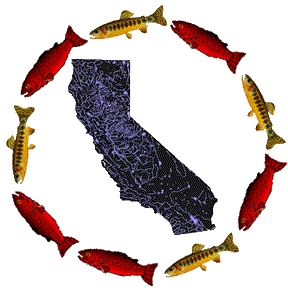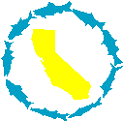|
CSPA |
| “Stockton’s
wastewater control system is a public health and environmental
hazard. The City’s failure to provide adequate facilities and
acceptable levels of maintenance for wastewater control
indicates an outrageous and egregious disregard for the health
of Stockton’s residents and poses a clear threat to the
integrity and survival of the Delta’s fish and wildlife
resources,”
Bill Jennings, CSPA Executive Director |
| Your 501(c)(3) tax deductible cash donations are desperately needed if the fight for our fisheries is to continue. Read how you can donate! |

 More
News
More
News
![]()
 CSPA
sues City of Stockton over waste water treatment plant
CSPA
sues City of Stockton over waste water treatment plant
 Watch
Jeff Schaub of KPIX, San Francisco and Bill Jennings, CSPA, discuss the
delta and Stockton's waste water treatment plant
Watch
Jeff Schaub of KPIX, San Francisco and Bill Jennings, CSPA, discuss the
delta and Stockton's waste water treatment plant
(If unable to play, download the open-source video player at http://www.videolan.org/)
September 19, 2008 -- After numerous, letters and meetings with the City of Stockton regarding Stockton's waste water treatment plant, all without a proper response or effort to adequately correct deficiencies, CSPA has filed suit under the Clean Water Act. The CWA provides for civil penalties of up to $27,000 for each violation occurring from 4 November 1999 to 15 March 2004 and up to $32,500 for each violation occurring since 15 March 2004.
“Stockton’s wastewater control
system is a public health and environmental hazard,” said CSPA
Executive Director Bill Jennings. “The City’s failure to provide
adequate facilities and acceptable levels of maintenance for wastewater
control indicates an outrageous and egregious disregard for the health
of Stockton’s residents and poses a clear threat to the integrity and
survival of the Delta’s fish and wildlife resources,” Jennings
observed,
adding that, “the spills and effluent violations evidence incredibly
poor environmental management.”
Several years ago, Stockton privatized its wastewater collection and treatment system by transferring the system to OCI/Thames. Citizens vigorously opposed the effort and subsequent litigation voided the deal and the city recent resumed control. Since June of 2003, Stockton’s 900 miles of sanitary sewers have experienced almost 1,500 overflows/spills of raw sewage. For example, in 2005, there were 335 spills or 37.2 per 100 miles of pipe. In 2006, there were 371 spills or 41.2 per 100/miles. In 2008, there were already 95 spills by 7 April. A well-run collection system experiences 0 to 3 spills per 100 miles per year and California’s median spill rate is about 4 spills per 100 miles.
Sewage spills and overflows are
serious health and environmental hazards. Because local business and
industry discharge into Stockton sewage system, sewage can contain
numerous dangerous chemical solvents, heavy metals like lead and mercury
and wastes that can impair immune and reproductive systems of Delta fish
and wildlife. Pathogens in untreated sewage can cause a multitude of
illnesses in humans. Stockton residents
may be exposed to these pathogens when swimming, waterskiing, wading,
fishing or boating in local waterways and the Delta, as well as when
sewage spills into homes, streets, parks, schools and businesses.
Under a permit issued by the Central Valley Regional Water Quality Control Board, Stockton’s wastewater treatment plant is allowed to discharge up to 55 million gallon per day of treated sewage into the San Joaquin River. The Permit imposes specific limitations on the effluent before it can be discharged to the river. It also imposes specific monitoring requirements. Information available to CSPA reveals that Stockton has violated its effluent limitations 604 times and violated monitoring requirements on 279 occasions.
Waterways in and around Stockton and the Delta are identified as “impaired” under the CWA and as “Toxic Hot Spots” pursuant to California’s Bay Protection and Toxic Cleanup Program. They are among the most polluted waters in the state. Numerous fish species that reside in the Delta or use the Delta as a migratory corridor are protected under state and federal endangered species acts. Pollution has been identified as one of the three principle causes of the present catastrophic crash of pelagic species in the Delta and declining salmonid populations in the Central Valley.
CSPA will seek injunctive and declaratory relief, to the extent provide by law, as well as civil penalties. The CWA provides for civil penalties of up to $27,000 for each violation occurring from 4 November 1999 to 15 March 2004 and up to $32,500 for each violation occurring since 15 March 2004.
Daniel Cooper and Drevet Hunt of Lawyers for Clean Water, Inc., and Michael Lozeau and Doug Chermak of Lozeau/Drury LLP. are representing CSPA in this matter.
CSPA vs. City of Stockton, COMPLAINT FOR DECLARATORY AND INJUNCTIVE RELIEF AND CIVIL PENALTIES